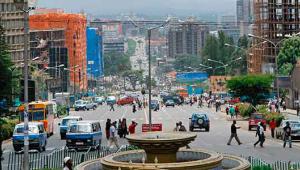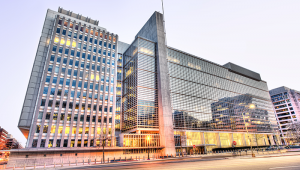By Nick Mann | 27 April 2012
Too much European Union development aid goes to middle-income countries bordering the bloc and not enough to the world’s poorest people and countries, UK MPs said today.
The UK spent £1.19bn – roughly 18% of its aid budget – through the EU in 2010, but a House of Commons’ international development committee report found that only 46% of this went to low-income countries. This compares with 72% of aid spent by the UK directly.
Instead, ‘relatively rich’ countries bordering the EU are benefiting, with Turkey and Serbia among the top five recipients of European Commission aid.
Committee chair Malcolm Bruce said: ‘British taxpayers want the aid they give to go to the places where it can make the most difference – to countries where millions of people are getting by on less than a pound a day. Giving aid to relatively rich countries like Turkey could devalue the concept of aid.’
To divert funding from these countries, the UK government should challenge and change the definition of Official Development Assistance, the MPs said. Currently, some pre-accession funding for countries such Turkey is deemed to count towards the target set for both the EU and its member states to give 0.7% of their gross national income as ODA by 2015.
They dismissed claims by the UK Department for International Development that changing the definition of ODA to exclude relatively rich countries would ‘take forever’, ‘be difficult’ and also make it hard for some countries to meet the 0.7% goal.
‘Ministers must be bolder in challenging the definition of what qualifies as Official Development Assistance,’ Bruce said. ‘It appears to be being used as a way of fudging the figures to help other European countries meet the target for 0.7% of GDP to be given as aid.’
The committee did acknowledge the advantages of giving aid through the EU – in particular its ability to operate large-scale regional programmes and its presence in countries where the UK does not otherwise have a bilateral aid programme, such as Niger and Haiti.
But the European Commission’s administrative costs are twice those of the DFID, the MPs said. One development organisation labelled the EU’s procurement processes ‘bureaucratic, time-consuming and cumbersome’.
The commission should put more emphasis on achieving value for money, the MPs said, and the DFID should press it to reform its procurement procedures.
UK International Development Secretary Andrew Mitchell said government pressure had already contributed to the EU reforming the way it spends its aid funds.
‘We absolutely agree with the committee that the EU must refocus its aid on the poorest countries and cut out waste and inefficiency. Following relentless pressure from the coalition government, the EU is already reforming the way it spends aid, making it more transparent, results-focused and targeted at the poorest people,’ he said.
‘Supporting Turkish accession to the EU has been the policy of successive British governments and is firmly in the national interest.’













